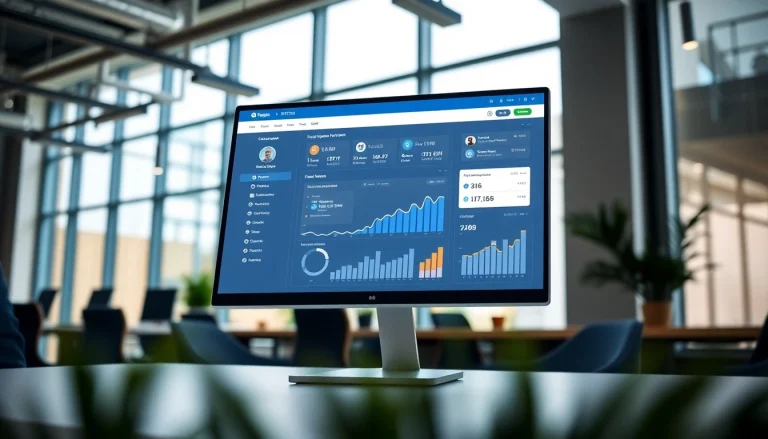
Understanding the Role of a Purchasing Consultant
The role of a purchasing consultant is multifaceted and crucial for organizations looking to optimize their procurement processes. As businesses face increasing complexity in supply chains and market dynamics, the need for expertise in purchasing strategies has never been more pronounced. Purchasing consultants are hired to identify opportunities for cost savings, improve supply chain efficiency, and ensure that organizations are making strategic decisions that align with their objectives. This article provides a comprehensive insight into the responsibilities, challenges, and best practices related to purchasing consultants, backed by real-life case studies that demonstrate their impact on various industries.
What Does a Purchasing Consultant Do?
A purchasing consultant serves as an expert advisor to organizations, assisting them in various aspects of the procurement process. Their primary responsibilities include:
- Assessing Current Procurement Processes: Evaluating existing purchasing procedures to identify inefficiencies and areas for improvement.
- Supplier Evaluation and Selection: Conducting thorough assessments of suppliers to ensure they meet organizational standards and compliance requirements.
- Negotiating Contracts: Engaging in negotiations with suppliers to secure favorable terms that enhance profitability and reduce costs.
- Developing Procurement Strategies: Crafting tailored purchasing strategies that align with a company’s long-term goals and market conditions.
- Training and Development: Providing training sessions for internal teams to ensure a deeper understanding of procurement best practices.
- Monitoring and Reporting: Continually tracking performance metrics to report findings and recommend adjustments for sustainable procurement practices.
Key Skills Required for Success
To thrive as a purchasing consultant, several key skills are essential:
- Analytical Skills: The ability to analyze data and identify trends is critical for evaluating supplier performance and procurement efficiencies.
- Communication Skills: Effective communication with stakeholders and suppliers is vital for successful negotiations and collaboration.
- Negotiation Skills: Strong negotiation tactics are required to secure the best deals and foster beneficial relationships with suppliers.
- Project Management: Managing multiple procurement projects simultaneously requires exceptional organizational skills.
- Industry Knowledge: Understanding the specific industry sector allows for better alignment with market trends and supplier capabilities.
The Impact of Strategic Purchasing on Business
Strategic purchasing can significantly impact an organization’s bottom line. By implementing efficient procurement strategies, businesses can:
- Reduce Costs: Streamlining purchasing processes can lead to substantial cost savings in materials and services.
- Improve Quality: A focus on supplier selection ensures that only high-quality products and services are procured.
- Enhance Competitiveness: Businesses that practice strategic purchasing often have the upper hand in a competitive market, able to offer better prices or enhanced quality to customers.
- Mitigate Risks: Understanding supplier capabilities and market dynamics helps organizations foresee and manage potential supply chain disruptions.
Common Challenges Faced by Purchasing Consultants
Navigating Supplier Relationships
Building and maintaining strong relationships with suppliers is one of the most significant challenges for purchasing consultants. Often, consultants must deal with suppliers that may not share the same priorities or standards. Successful navigation of these relationships requires:
- Effective Communication: Regular updates and clear expectations can help align goals between the organization and suppliers.
- Trust Building: Establishing credibility through consistency and reliability encourages suppliers to commit to long-term partnerships.
- Conflict Resolution: Being adept at resolving conflicts amicably will facilitate smoother interactions.
Managing Costs and Budgets Effectively
Consultants frequently face the challenge of balancing quality with cost considerations. Some strategies to manage budgets effectively include:
- Negotiating Volume Discounts: Securing better rates through bulk purchases can lead to significant savings.
- Cost-Breakdown Analysis: Understanding the total cost of ownership rather than just the initial price can lead to better purchasing decisions.
- Setting Clear Budget Constraints: Establishing a firm budget ensures that purchasing decisions stay within financial limits.
Overcoming Supply Chain Disruptions
Supply chain disruptions can originate from various factors such as natural disasters, geopolitical issues, or sudden shifts in market demand. To mitigate these risks, purchasing consultants should:
- Diversify Sources: Engaging multiple suppliers can create a buffer against disruptions from any single source.
- Implement Risk Management Plans: Contingency planning and risk assessments can prepare organizations for unexpected supply chain challenges.
- Utilize Technology: Implementing advanced supply chain solutions can provide real-time data, enabling quicker response to disruptions.
Best Practices for Purchasing Consultants
Leveraging Technology in Procurement
In today’s digital age, technology plays a pivotal role in procurement. Purchasing consultants can leverage various technological solutions to enhance their effectiveness:
- e-Procurement Systems: These platforms streamline the procurement process, from requisition to payment, improving efficiency and transparency.
- Data Analytics Tools: Utilizing data analytics allows consultants to gain insights into procurement patterns, supplier performance, and cost-saving opportunities.
- Collaboration Software: Tools that facilitate communication and collaboration among stakeholders and suppliers can enhance procurement outcomes.
Building Strong Vendor Partnerships
Successful purchasing consultants understand the importance of building long-term partnerships with vendors. Strategies for fostering these relationships include:
- Regular Engagement: Frequent communication and check-ins with suppliers help maintain strong partnerships.
- Feedback Loops: Establishing feedback mechanisms ensures that suppliers understand the organization’s needs and can adjust accordingly.
- Joint Problem Solving: Involving suppliers in discussions about challenges promotes collaboration and can result in better solutions.
Continuous Learning and Development
The field of procurement is continually evolving. Therefore, purchasing consultants should prioritize ongoing education through:
- Certifications: Obtaining relevant certifications enhances credibility and keeps consultants updated on industry best practices.
- Networking: Joining professional associations can provide insights into emerging trends and peer experiences.
- Workshops and Seminars: Participating in training can enhance skills and knowledge of new procurement strategies and technologies.
Case Studies: Successful Purchasing Consultant Engagements
Case Study 1: Streamlining Operations in Retail
A major retail chain hired a purchasing consultant to analyze its supply chain operations. The consultant conducted a comprehensive review of supplier contracts, identified redundancy in suppliers, and consolidated purchasing power across categories. As a result, the retailer achieved a 15% reduction in supply costs and improved inventory turnover rates.
Case Study 2: Enhancing Supplier Diversity
A technology company recognized the importance of supplier diversity and engaged a purchasing consultant to assess its supplier network. The consultant implemented a strategic approach to sourcing, emphasizing inclusivity and connecting with diverse suppliers. This not only positively impacted their reputation but also improved innovation and responsiveness, resulting in enhanced product offerings.
Case Study 3: Cost Reduction Strategies in Manufacturing
A manufacturing firm faced rising costs and sought a purchasing consultant’s expertise. The consultant introduced a tiered pricing model with key suppliers and facilitated renegotiations based on performance metrics. The company saw a drastic reduction in component costs by 20% without sacrificing quality, significantly impacting profit margins.
Metrics for Measuring Success as a Purchasing Consultant
Key Performance Indicators to Track
To assess the effectiveness of purchasing strategies, consultants should track various key performance indicators (KPIs) such as:
- Cost Savings: Measuring percentage savings relative to previous periods is vital for determining financial success.
- Supplier Performance: Monitoring delivery times, quality metrics, and compliance rates helps gauge supplier effectiveness.
- Procurement Cycle Time: The time taken from requisition to order fulfillment reveals operational efficiency.
Assessing ROI from Purchasing Strategies
Quantifying the return on investment from procurement strategies is essential. Consultants can calculate ROI by comparing the cost of consulting services against the realized savings and benefits. A thorough assessment includes not only tangible savings but also qualitative factors such as improved supplier relationships and operational efficiencies.
Reporting to Stakeholders Effectively
Transparent and effective reporting to stakeholders is critical for maintaining buy-in and demonstrating value. Key elements of successful reporting include:
- Data Visualization: Utilizing graphs and charts can make complex information more digestible for stakeholders.
- Regular Updates: Providing consistent progress reports keeps stakeholders informed and engaged.
- Linking to Business Objectives: Aligning procurement metrics with overall business goals reinforces the importance of purchasing initiatives.






